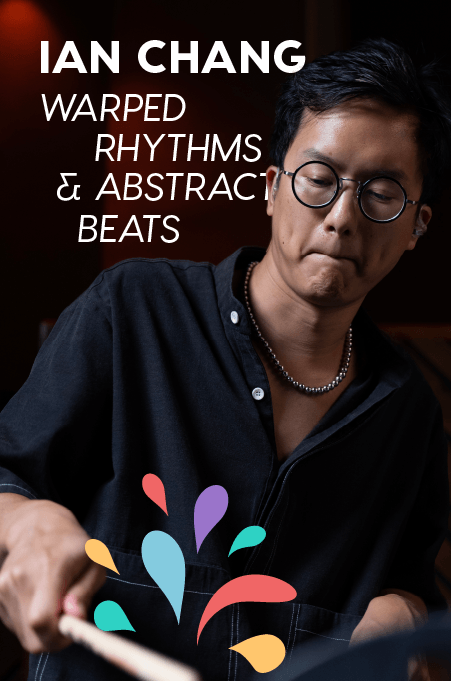
+ Improve your songwriting with Soundfly! Explore our range of courses on emotional chord progressions, basic songwriting technique, songwriting for producers, and many more. Subscribe for unlimited access here.
As a software developer, music producer, and founder of a music technology startup, there are a few things along the way that have allowed me to move projects forward and progress. I draw parallels and insights from all three of those roles. But I find it most rewarding to apply the learnings from all three to no matter what creative project I’m working on — music, software, or business.
What Is the Goal or Vision?
Small tasks are often related to a bigger goal or vision. I started Notetracks on a vision of wanting to be a hit record producer. That was the ultimate goal — and still is!
Along the way, I also picked up another goal of being a founder of a successful music technology startup. These are often growth and career oriented. I want to be the best artist, music producer, mixing engineer, video creative, educator, collaborator, team member, project manager, entrepreneur (etc.) in my industry.
You need to able to answer why you’re doing something. A bigger “Why” will help you break your goal into smaller tasks. If you’ve never seen this video on starting with why by Simon Sinek, it’s worth a watch!
Have a Reward System in Place
In most cases where I’ve achieved progress toward a goal, there’s been a reward system.
Having general goals helps with the overall vision. But having a rewarding outcome is a strong incentive to deliver results. There could be many rewards in completing a creative project, such as:
- Being part of a collaborative project
- Achieving project success
- Showcasing your talents and exposure of work
- Building your portfolio
- Being the best that you can be and great at what you do
- And even making money!
+ Read more on Flypaper: “How to Stay Motivated, Even When You Feel Like the Biggest Sack of Potatoes Ever.”
Be Pushed by Other Amazing People
Whether it’s a team counting on you or who you’re delivering the project for, it’s important to have others help you push forward. In the music world, it could be a label or client and team of artists, producers, or engineers you’ve been working with. An example in the software industry would be launching a project or product with a well-known industry partner.
The power that others provide you give you no option of slowing down or turning back.
Another important note is finding the best team players for the tasks. They say teamwork makes the dream work and that is no lie. If you’ve got amazing friends, advisors, team members and partners supporting you, you’re in very good hands and have more chances for project success.
When Is the Deadline?
Everything needs to move forward and conclude on a deadline. If there’s no specific deadline, things can stay in what I like to call “iteration mode.” They end up being refined over and over again. This is sometimes for the wrong reason and makes things even worse.
I’ve seen this in music, software development, and business development. There was a post I read where someone mentioned that “Art is never finished, it’s just the time is over for it to be released to the world.”
One of the best experiences I ever had was creating music for clients and music competitions. Why? They involved “making it by this date or losing the opportunity” deadlines that allowed me to focus and complete without thinking I had all the time in the world to perfect it. On the other hand, when I would create music just for fun, I’d practice, make small snippets and accumulate a ton of unfinished work that went nowhere.
Same goes for software, when there’s a release date (preferably given by someone else like a strong partner giving you a strong incentive), you have no choice to get the things that absolutely need to get done.
I learned this in fundraising for our startup as well. We’ve been fortunate to receive government grants that were deadline based and obviously had strong incentives for the company (building our software, staying afloat, etc). When it comes to investor talks in the fundraising community, the same rules apply, if you don’t have a deadline, you could be in talks forever without it leading up to anything.
Our first investment into the company was done by an accelerator in Nashville, Tennessee. Guess what? They had a deadline to apply.
Deadlines shape the project, eliminate losing track and provide laser sharp focus towards reaching the desired outcome, destination, or goal.
+ Learn production, composition, songwriting, theory, arranging, mixing, and more on Soundfly — whenever you want and wherever you are. Subscribe for access!
What’s the Plan?
Now you’ve got the “Why,” a good enough “Reason” and a “Date.” Let’s talk about what you need to get there. They don’t call it a roadmap or game plan for no reason. While I feel this can be a project management post on it’s own, I’ll do my best in summarizing the best practices that I’ve experienced.
With a reason and date, certain lingering questions and tasks already start to take shape.
You need to list and brainstorm all the tasks that need to get done and then prioritize by importance. If you have any bottlenecks, you may need to delegate or find team members to help you finish them.
What I find works the best is having a project management platform to keep track tasks and divide them by weeks leading up to that launch. This could be an Asana or Trello board. It helps bring everyone on the same page. You can also use simple notes for yourself and communicate with team members however you feel is best.
Here are two quick goal examples:
Goal 1: Four weeks to do a marketing video for our new brand.
Things to do:
- Get a videographer
- Shoot date
- Find folks to be in the video
- Music that need to be in there
- Get feedback and review
- Publish on a marketing site.
- Promote it!
Week 1
- Find folks to be in the video (if we don’t have folks, there’s nothing to shoot) —Assigned to Amanda.
Week 2
- Get a videographer — Assigned to Kam.
Week 3
- Shoot date — Assigned to Amanda.
- Music that needs to be there —Assigned to Amanda.
Week 4
- Music that needs to be there — Assigned to Kam.
Goal 2: Four weeks to launch software with partner to acquire new customers.
Things to do:
- Need to get the site ready
- Need to prepare marketing materials
- Need to test
- Need to promote
Week 1
- Need to get the site ready — Assigned to Developers.
Week 2
- Need to test — Assigned to Quality Assurance Leads.
Week 3
- Need to prepare marketing materials — Assigned to Marketing team.
Week 4
- Need to promote — Assigned to Partner.
Always have a bit of buffer in the leading up to deadlines. I like to keep my weekly deadlines for Friday. If any deliverables are late, they can leak into the weekend and be there on Monday.
Follow Up and Refine.
At whatever stage you’re in, you need to follow up with everyone involved and provide feedback where appropriate. I’ve seen projects not be as strong as they could have been because of lack of follow-up communication or feedback. If one does not know how to improve, one cannot improve.
For small back and forth feedback, there are tons of tools — email, Slack, and texting all come to mind to get the job done. For some industries like creative work, there are tools like Invision or Notetracks Pro.
Even with all of these tools, sometimes an in-person meeting or video call work best. It’s easiest to get a reaction or feedback with a thumbs up than going back and forth over email.
+ Read more on Flypaper: “Our 7 Favorite Collaborative Music-Making Apps.”
Celebrate the Wins!
One you’ve delivered the project, take a moment to celebrate! Celebrate, good times, come on!
Folks that deliver projects are usually quick to jump to the next after a project is successfully completed. I find it’s important to pause and celebrate the achievement as well as thank any team members and stakeholders responsible. It’ll replenish energies to tackle the next task.
On that note, thank you to Amanda who pushed me to write this post with a strong incentive that it can perhaps have value for you readers out there. Also thank you to the amazing friends, advisors, team members, freelancers, contractors and partners that have been supporting our projects from day one. I’ll celebrate this post with a fresh new cup of coffee!
Achieve your musical goals with a Soundfly Mentor by your side.
Soundfly’s community of mentors can help you set the right goals, pave the right path toward success, and stick to schedules and routines that you develop together, so you improve every step of the way. Tell us what you’re working on, and we’ll find the right mentor for you!
—
 Kam Lal is the founder and CEO of Notetracks. He is based in Montreal and has a passion for music and tech.
Kam Lal is the founder and CEO of Notetracks. He is based in Montreal and has a passion for music and tech.





